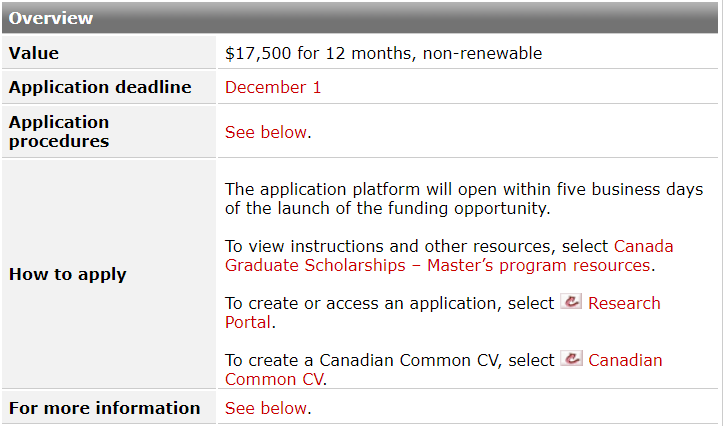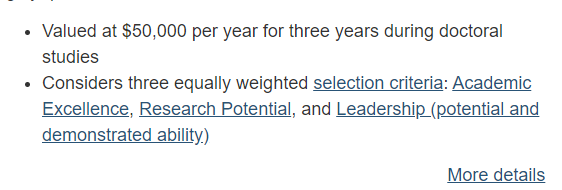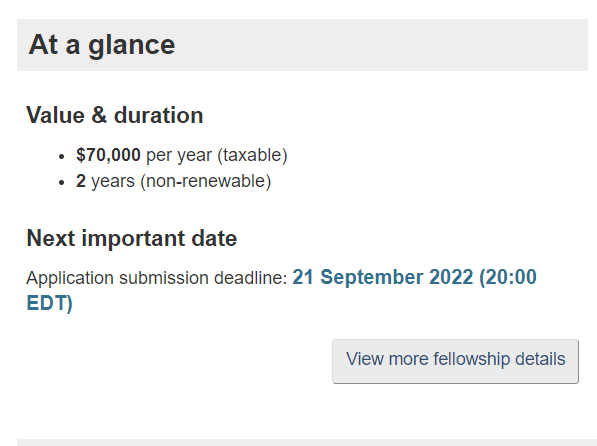Over 67,000 Indian students received student visas in the first four months of 2021 to study in Canada. That’s 83% higher than the entire 2020.

Many of these students chose to do a Master’s in Canada. Their subject? Finance.
Why the craze to study Master’s in Finance in Canada? Here are three principal reasons:
- Three universities placed in the top 100 in the QS World University Rankings 2022 offer the program – the University of Toronto (QS World University Ranking 26), McGill University (QS World University Ranking 27), and the University of British Columbia (QS World University Ranking 46).
- Students can opt for multiple specialisations including financial planning, financial analytics, and insurance management when studying Master’s in Finance in Canada.
- Students can get into careers such as investment bankers, financial analysts, and tax advisers that offer average salaries of CAD 123,000 a year.
However, studying Master’s in Finance in Canada is expensive. You need to pay up to $60,000 (CAD 77,888) for tuition fees. Furthermore, you need to pay up to $1,060 (CAD 1,376) in food, accommodation, and other living expenses.
Scholarships might not fulfil all your needs. Student loans from banks and NBFCs are tiring, lengthy, and come with humongous interest rates.
That’s when you need additional financial help.
That’s when you need FundRight.
More on FundRight later. Back to discussing studying Master’s in Finance in Canada for now.
Note: the information is true at the time of writing. That’s July 2022.
| Duration | 2 years |
| Eligibility criteria |
|
| Course fees and living expenses |
|
| Top universities |
|
| Scholarships |
|
Studying Master’s in Finance in Canada — a complete guide
Top universities
Five of the most popular universities offering Master’s in Finance in Canada are:
- University of Toronto: QS World University Ranking 26
- McGill University: QS World University Ranking 27
- University of British Columbia: QS World University Ranking 46
- University of Montreal: QS World University Ranking 111
- Queen’s University: QS World University Ranking 216
Eligibility criteria
Applicants must have:
- An undergraduate degree from an accredited university or institution in fields such as Financial Theory, Business Finance, or Business Statistics.
- A minimum 3.0 GPA. A minimum of 2.0 GPA on a 4.0 scale for transfer students.
- A minimum of 7.0 IELTS score with at least 6.5 for each compartment.
- A minimum of 100 TOEFL (iBT) score with at least 22 in speaking and writing.
Course fees and living expenses
Expect to pay up to $60,000 (CAD 77,888) for tuition fees to study Master’s in Finance in Canada. Furthermore, expect to pay up to $1,060 (CAD 1,376) a year in food, accommodation, and other living expenses to study Master’s in Canada.
The costs you must bear to study in Canada can quickly poke a hole in your pocket. Scholarships might not be enough to assist you. That’s when you need student loans to help sew the hole back.
However, go for public or private sector banks or NBFCs and you’re setting yourself up for:
- A lengthy and tiring processing time of up to 20 days.
- The need to submit collateral to the bank.
- Huge interest rates of up to 15%.
That’s when FundRight can help you. At FundRight, we offer:
- More than 30 lenders including private and public sector banks, NBFCs, and even international lenders competing to offer you a student loan.
- A processing time of up to 48 hours.
- The option to stay anonymous so banks and financial organisations can never track your personal details.
- Competitive interest rates that help you save the most in your budget.
Sounds good? Write to us at grad@stage.gradright.com to talk to our financial and education advisors.
Deadlines
Check out the application deadlines of the top universities offering Master’s in Finance in Canada below:
| University of Toronto | January 10 |
| McGill University | Preliminary Deadline: November 15
Final Deadline: January 15 |
| University of British Columbia | December 31 |
| University of Alberta | January Admission: November 1
May Admission: March 1 July Admission: May 1 September Admission: July 1 |
| University of Montreal | Fall Session Deadline: March 15
Winter Session Deadline: September 15 |
Scholarships
Check out three of the most popular scholarships available to study Master’s in Canada:
1. Natural Sciences and Engineering Research Council of Canada (NSERC) Postgraduate Scholarships

The scholarship is open to international students studying Master’s at a recognised university or college in Canada.
The awardee will receive $17,500 per year for two years. The duration of this scholarship isn’t renewable.
2. Vanier Canada Graduate Scholarships Program

The scholarship program is open to international students studying at specific universities in Canada. The applicants must be nominated by the university.
The awardee will receive $50,000 a year for two years. The scholarship is valid for 3 years and non-renewable.
3. Banting Postdoctoral Fellowships

The scholarship is open to international students studying at a recognised university in Canada.
The awardee will receive $70,000 a year for two years. Furthermore, the scholarship amount is taxable.
Career opportunities
Students pursuing Master’s in Finance in Canada can get into jobs such as:
- Financial Analyst: Determines the financial worth of a company based on financial statements and reports.
- Market Research Analyst: Conducts polls and surveys to forecast marketing and sales trends.
- Risk Manager: Measures potential profits and losses due to natural disasters, market fluctuations, and legal issues.
FAQs
Question 1: What are the top universities to study Master’s in Finance in Canada?
Ans: Five of the top universities are:
- University of Toronto
- McGill University
- The University of British Columbia
- University of Alberta
- University of Montreal
Question 2: What are the course fees to study Master’s in Finance in Canada?
Ans: Expect to pay up to $60,000 (CAD 77888) for tuition fees to study Master’s in Finance in Canada.
Furthermore, expect to pay up to $1,060 (CAD 1376) a year in food, accommodation, and other living expenses to study in Canada.
Question 3: What scholarships can I get as an international student to study in Canada?
Ans: Three scholarships you can get as an international student to study in Canada are:
- NSERC Postgraduate Scholarships
- Banting Postdoctoral Fellowships
- Vanier Canada Graduate Scholarships Program
Question 4: What are the deadlines to apply to the top universities offering Master’s in Finance in Canada?
Ans: Check out the application deadlines to apply to five of the top universities offering Master’s in Finance in Canada:
- University of Toronto: January 10
- McGill University: January 15
- University of British Columbia: December 31
- Queen’s University: Rolling admission
- University of Montreal: March 15 for the Fall session and September 15 for the Winter session
Question 5: What are the university rankings of the top universities offering Master’s in Finance in Canada?
Ans: Check out the university rankings of five of the top universities offering Master’s in Finance in Canada:
- University of Toronto: QS World University Ranking 26
- McGill University: QS World University Ranking 27
- University of British Columbia: QS World University Ranking 46
- Queen’s University: QS World University Ranking 216
- University of Montreal: QS World University Ranking 111
Studying Master’s in Finance in Canada — FundRight is here to help
We have covered all the information to study Master’s in Finance in Canada in this article.
However, studying Master’s in Canada is expensive. Expect to pay up to $60,000 (CAD 77888) for tuition fees to study Master’s in Finance in Canada. Furthermore, expect to pay up to $1,060 (CAD 1376) a year in food, accommodation, and other living expenses to study in Canada.
Scholarships might not be enough. That’s when you need student loans. However, go to the public or private banks or NBFCs and you’re looking at:
- The need to submit collateral to the bank.
- A lengthy and exhaustive processing time of up to 20 days.
- Massive interest rates of up to 15%.
That’s when you should opt for FundRight. At FundRight, we offer:
- Over 30 lenders including public and private sector banks, NBFCs, and international lenders bidding to offer you a student loan.
- A processing time of up to 48 hours. Can you think of anything faster?
- The lowest possible interest rate that allows you to save more on your budget.
If you want to know more, drop us a mail at grad@stage.gradright.com to talk to our education and financial advisors.
We hope the article will help you in your journey to study Master’s in Canada.


















